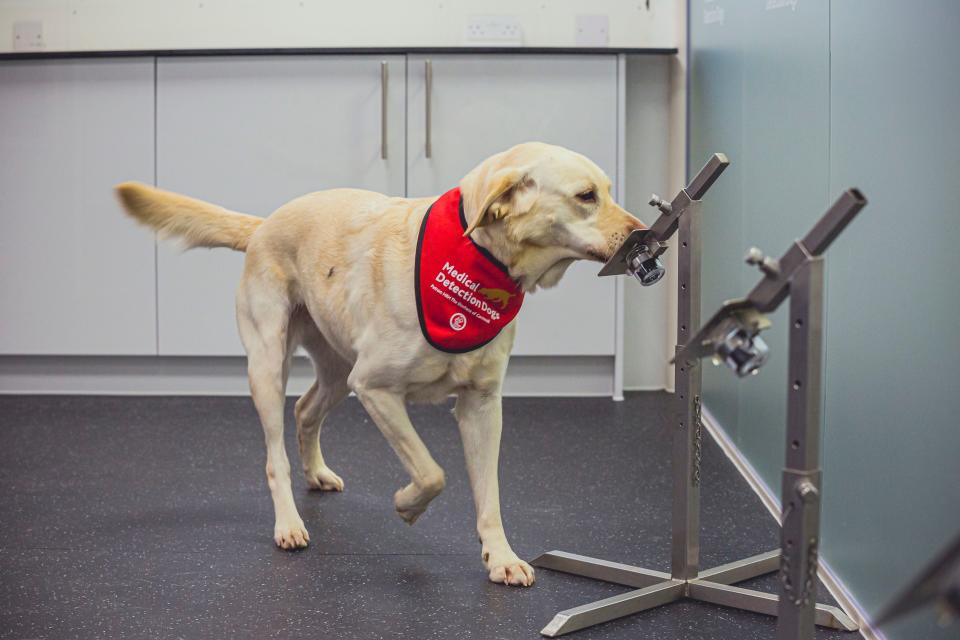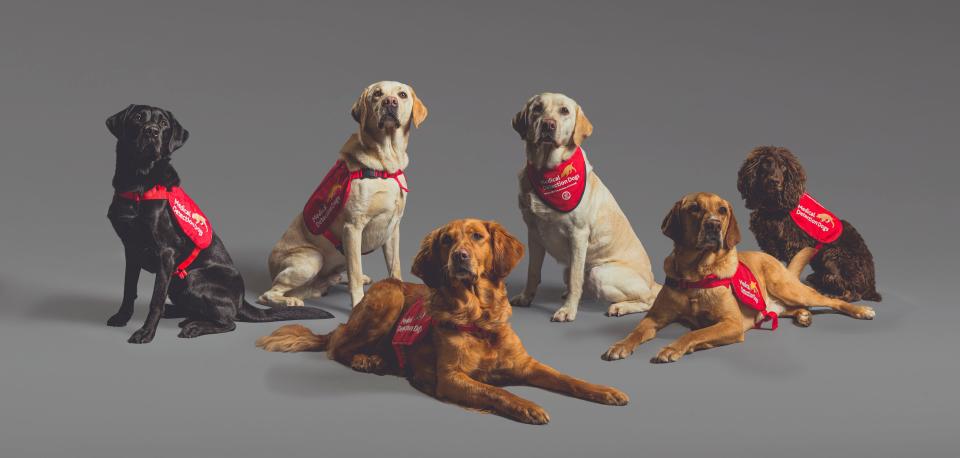Sniffer dogs trained on smelly socks can detect Covid with up to 94% accuracy
Watch: Study suggests trained dogs can sniff out coronavirus with up to 94% accuracy
Sniffer dogs trained using smelly socks to pick up “corona odour” can identify people infected with the virus with greater accuracy than lateral flow tests, scientists say.
Working in teams of two, the Covid-trained dogs could be used to screen hundreds of people at airports or events within half an hour, according to research published on Monday, with up to 94 per cent sensitivity.
But experts have cautioned that the findings of the study, which is yet to be peer-reviewed, would need to be replicated in the real world before sniffer dogs could be deployed.

The six dogs in the study were trained over several weeks by being introduced to 200 odour samples in the form of unwashed socks and t-shirts worn by health workers and members of the public who tested positive for Covid-19 and 200 control samples from people who tested negative.
They were then able to sniff out even asymptomatic and mild Covid-19 cases, as well as those caused by the ‘Kent’ or UK variant, B.1.1.7, researchers said.

Sniffer dog pilot projects have also been tested elsewhere, including in Finland, Germany and Chile.
Their advantage over screening methods like lateral flow testing is their “incredible speed and good accuracy among large groups of people,” according to James Logan, a disease control specialist at the London School of Hygiene & Tropical Medicine who led the project.
The highest performing dogs in the trial detected coronavirus odour in the clothing samples with up to 94.3 per cent sensitivity and up to 92 per cent specificity, meaning a low risk of false positive or false negative results.
This is a higher degree of accuracy than is recommended by the WHO for Covid-19 diagnosis, Logan’s team said, and higher than lateral flow tests which have an overall sensitivity between 58 and 77 per cent.
Steve Lindsay, a Durham University biosciences professor who worked on the study, added that the dogs could help “prevent COVID-19 from being re-introduced into the UK”.
But the research is currently in its early stages, and would need to be replicated in the real world before we can expect to see sniffer dogs in airports and stadiums.
“This proof of concept study suggests that trained detection dogs could be used in places like airports, sports stadiums and concert venues,” said Lawrence Young, a virologist and professor of molecular oncology at Warwick University.
“The big question is will this approach work in the real world on people rather than samples of socks and shirts?”
Watch: Thai sniffer dogs make COVID detection debut
Read More
James Newman represents the UK at Eurovision
Einstein handwritten letter with E=mc2 equation fetches $1.2m at auction

 Yahoo Finance
Yahoo Finance 